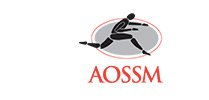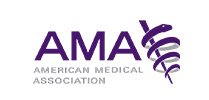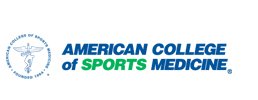Preparing for Surgery & Procedure
Thank you for choosing Beacon Orthopaedics and Sports Medicine and Dr. McClung for your care. We are excited to get you back to being pain free and active again!
Once you've met with Dr. McClung and decided that surgery is the best route for getting you back to a pain free lifestyle, our surgery scheduler will be getting in touch with you within a couple of days to schedule your surgery and go through what needs to be done prior to your procedure. You will need to see your primary care physician or an urgent treatment center within 30 days of surgery for a preoperative history and physical exam. This ensures that it's safe for you to undergo general anesthesia and will assess any risks prior to your surgery. This will be reviewed by Dr. McClung's team and also by our anesthesiologists. You will also need to get some minor bloodwork and a urinalysis and depending on your medical history and your age, an EKG may be done. All of this must be done by the Friday prior to your surgery or your surgery may get rescheduled.
Our team of preoperative nurses will also be contacting you within a week of your surgery to go through your medical history and medications. This is a great time to clarify any questions you may have about continuing or stopping any medications.
Our patient advocate will contact you regarding the cost of your surgery. She contacts your insurance company and will inform you of any upfront costs you may need to pay before your surgery can be done. She can answer any financial questions you may have.
You will receive a call from the surgery center 24-48 hours prior to surgery with the specific time you must arrive. We cannot guarantee any surgical times before this 24-48 hour period.
Things to do and not to do the night prior to your surgery
- Do not eat or drink after midnight – only small sips of water with the medications you have been instructed to take.
- Do not drink alcohol, including beer, wine and liquor. Stay well hydrated.
- Do not smoke or chew tobacco
- Brush your teeth but be mindful not to swallow the water.
- Do clean the surgical area with antibacterial soap, such as Dial
- Do not bring anything of value with you to the surgery center – leave your jewelry at home.
On the day of surgery
- Bring your insurance card, driver's license and a copy of your Advance Directives if you have them
- Bring your CPAP if you have one
- Wear something comfortable
- Bring your crutches or your sling on the day of surgery.
- Bring your glasses, contacts or hearing aids.
What to expect on the day of surgery
Your procedure will be done at our outpatient surgery center (or Good Samaritan Hospital or Christ Hospital if your insurance or health status requires it to be done at a hospital). Once you have checked-in, you will be taken to the pre-operative holding area. Here, you will have a nurse that will start your IV and prepare you to go into the operating room. You will meet your anesthesiologist and Dr. McClung will also be there. Depending on your procedure, you may receive a peripheral nerve block, this will help reduce post-operative pain for the first 12-24 hours. You will be given a mild sedative in the pre-op holding area for this procedure to be done.
You will be under a general anesthesia during your procedure. You will need a responsible adult to accompany you to the surgery center to make sure you get home safely, you will not be able to drive. This person will also be the person that Dr. McClung will speak to once your procedure has been completed.
Home care after surgery
Keep your incision clean and dry. Do not change the dressing, it will be changed at your post operative appointment with Erinn or Dr. McClung on the day following surgery or at your physical therapy appointment. It's important to keep the wound clean and dry to avoid risks for infection. Do not submerge in water (bathtub, hot tub, lake, pool, river, etc.) until at least 2 weeks post operatively. You may shower, be sure to cover the incision sites with waterproof bandaids and change them once you're done showering. If the site gets wet, pat it dry and cover with a dry dressing. Do not put any ointments or creams on the incision sites.
You can help control pain postoperatively with ice. You can use ice bags at home and leave them on for 20 minutes every hour as needed. If you purchased an ice machine pre-op, you can leave it on the surgical site for 1 hour at a time.
Take the medications prescribed to you post-operatively as prescribed. Do not take them more frequently or with any other sedatives or sleep aids. If you have questions regarding this contact us or your pharmacist. Sometimes pain medication can be constipating. You can take over the counter stool softeners or laxatives for relief. If this doesn't work, please let us know.
If you experience any of the following post operatively, call the office immediately:
- Temperature greater than 101.5 degrees
- Bright red blood through your dressing
- Increased drainage, redness or foul-odor from the wound
- Swelling or pain in the calf or foot
- Difficulty breathing or chest pain






